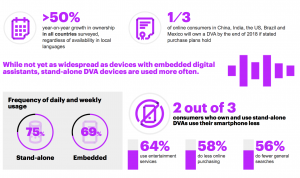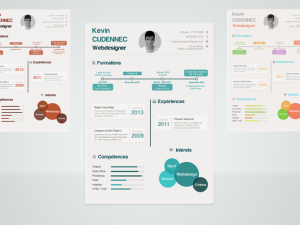— April 3, 2018
I’ve been hard at work building a team of marketers, so I’ve kind of fallen off the map in terms of blogging, but I want to talk about how the hiring process went.
Before we jump in there are a couple of things I want to point out. First, building a team is a lot of hard work. And I don’t just mean the act of hiring the people for the team (that’s hard too), but also creating the foundation to support a team.
This requires a list of sellable services that are broken down by tasks, assigning roles and responsibilities to those tasks, analyzing capacity, and hiring where we need help. Consequently, this can take months to map out properly.
After working early in the morning to late at night to accomplish this I had grown a sense of ownership over my team. It was great, we were looking good and knew who else we needed. So, it was time to start the hiring process.
One last thing before we jump in. Chances are, at companies like the one where I work, the person doing the majority of the applicant vetting is also the team lead. For me, interviewing and vetting was one tiny aspect of my total job responsibilities.
So, I’d like to send out some interviewee behaviors that are less than great so maybe I can avoid them in my next wave of interviews.
Alright, job hunters here’s how the worst applicants made an impact in my interviews.
They Were Late
I’m going to be brutally honest. I didn’t really want to go to these interviews, but I had to. My team’s capacity was a wreck and I needed a person, so I didn’t really have a choice. But I was prepared, easy to talk to, and tried to make it as fun as possible.
In one interview, I was talking with someone and had the intention of turning them down for the job in questions and asking them if they would be interested in a higher job offer.
Their resume was littered with qualifications that would put them on track for a leadership position. So, being as I knew I was going to hire a manager at some point, I figured “Why not see if they’re interested?”
Then they were late. I can’t bring someone on and expect them to work with my team to handle any kind of work, especially managerial work, if they’re going to be late. Next!
Being on time is really simple shit and calendar invitations were sent well in advance based on a time of the candidates choosing. If you can’t handle something this easy, how can I trust you to do anything?
They Didn’t Read The Job Description
I make a point to always have a sentence or two that describes the person this job is for. I have bullets and requirements too, sure. But, I don’t necessarily expect someone to have all of those qualifications. However, the sentence that summarizes the person this job is for is non-negotiable.
The thing is, interviewing candidates is hard work. I picked the questions I was asking intentionally, mapped out a small assignment for each person I interviewed to do after the interview.
Then, I put the interview document and assignment instructions/files in a Google Drive folder specifically for that person. Keep in mind, I’m doing this in addition to full-time client work and travel. Oh yeah, I’ve been traveling a lot lately, too. Maybe I’ll write a blog post about travel in the coming weeks…
So anyway, meeting with someone who didn’t have the basic qualifications for the position wasted the time and effort I put in to prepare for that interview. Next!
They Were Dishonest
Having an up to date resume is essential. I don’t care if your resume says you’re still at your previous employer, even though you’re not, simply because you forgot to update it. I don’t know you!
I’m either going to assume you’re lying, or you’re haven’t gone through basic preparation for this pretty simple meeting.
I don’t mean to sound aggressive, but seriously, this one is simple shit. NEXT!
They Didn’t Treat me Like I was “The Client”
I have a few side projects, and I help the company where I work close clients from time to time. So, I understand the dynamic of talking to someone who I expect to pay me for a service. In the setting I was hiring for, I was looking to pay someone to handle a service for me.
This was a concept that whittled down the talent search pretty significantly.
If I’m about to pay someone thousands of dollars per month to handle a job, then I’m going to expect them to handle it. My clients don’t work with me, pay my company thousands of dollars per month, only to tolerate me not handling their projects.
To be a little more specific, here are a couple common examples:
- After discussing how I need to hire someone to build plans and execute on them, I would ask them what they need to get started with this kind of work. Then, they would list off all the work I need to do to put together a plan for them.
If a client told me they want me to handle their next AdWords strategy and asked me what I need from them to get started and I said “An AdWords strategy” I probably wouldn’t close the deal. - I asked several questions about work scenarios, and in a few meetings, the person I was talking to would get really aggressive over these questions. I wasn’t asking them about trade secrets or anything. It was pretty basic, high-level questions to get an idea of how work will be handled.
If a client asked me how my company will help them take care of a specific deliverable and I got aggressive with them I probably wouldn’t close that deal either. Next!
Like it or not, as a prospect for a job, you’re getting paid to deliver something for someone else. Much like how a professional-services company gets paid to deliver something to their clients. It’s almost as if getting a job is almost the exact same dynamic.
The best interviews I had were with someone who seemed to grasp that simple concept. When I’m interviewing to pay someone, I’m the client and the interviewee is the provider.
Consider this interview your discovery call for an available position. It can be used to find out if you can help, you might want to come with examples of times when you’ve solved similar issues for another client, and be ready to talk, high-level, about your process.
They Didn’t Ask Real Questions
Alright, this one is a little more nuanced than the other ones above. That said, I did notice when someone would ask me canned questions, or no questions at all. In fact, I actually went out of my way to limit the number of canned questions I would have to answer by setting the interview agenda like this:
- Introduce myself
- Interview questions
- Talk, in pretty good detail, about the team, our management style, and why we’re hiring this position
My hope was that, between those three core segments, the interview would capture any basic questions. A few still got through, and while it wasn’t detrimental to my well being, it made the interview fall a little flat. In my opinion anyway.
For the record, the person I ended up hiring used this opportunity to ask me if her lack of marketing technology experience will hurt her likelihood of getting the position. This question should be indicative of how the majority of the interview went (if it’s not obvious, she said “I don’t know” a lot).
We ended up having a real conversation at the end. That’s not the only reason why she got hired, but it was humanizing. Also, had it not been for her question, other aspects of vetting her might have been overlooked.
The opportunity to ask any questions is a chance to have a dialogue about something. You can strip down jargon or professional buzzwords and talk like a person looking to work with a team of people.
I might be a little biased here. I hate it when I hear people trying to talk like a professional by using nonsensical jargon and awkwardly structured sentences. In fact, one of my sayings is, “If you have to try to speak like a professional, it’s probably because you’re not a professional.”. Plain language might be the way to go.
Happy hunting everyone!
Business & Finance Articles on Business 2 Community
(29)






